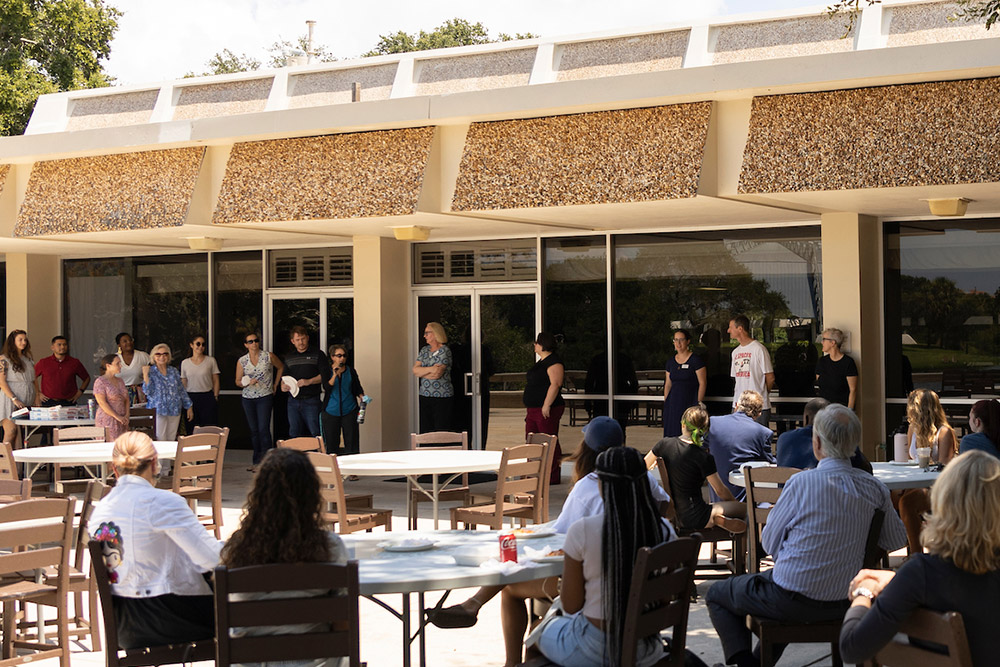
Eckerd first-generation students at a meeting outside Fox Hall last Autumn Term; photo by Penh Alicandro ’22
The No. 1 question Kelly McGaughey, director of financial aid at Eckerd College, hears is “How do I get more scholarships?”
As she told first-generation college students at a recent financial aid information session, “It takes work.”
McGaughey reminded students, who were invited to the event by the First-Gen Club, that you get what you pay for, and there is a real monetary value in a college education. The First-Gen Club—a student-led organization that gathers students, faculty and staff who consider themselves first-generation college students/graduates—planned the event as part of a series of workshops and gatherings aimed at demystifying the college experience.
The definition of “first-generation students” can look different depending on whom you ask. For some first-gen students, they are the first person in their immediate family to go to college. For others, they have an older sibling who has gone before them, but since their parents don’t have a four-year degree, they are still in the first generation of their family to seek to earn a college degree. Regardless of which definition Eckerd students identify with, the Financial Aid Office is there to support students who are coming from families with little background knowledge about how to navigate all of the logistics that come with college. The goal of events like these is to share experiences and create community and for students to walk away with a better understanding of the resources available to them.
“Events like this are important to me because I want to help students who don’t have the resources they need to take ownership of their education,” McGaughey said.
She and Assistant Dean of Faculty Kat Robinson, Ph.D., each prepared a presentation for first-gen students to give them information about various resources. McGaughey explained the four types of aid (scholarships, grants, work-study and federal loans) and answered questions about the nuances of each. She encouraged students to apply for work-study. The more students who take advantage of the resources, the more positions there will be.
McGaughey emphasized the value of making connections and building a network, “finding your people.”
She explained, “I love opportunities like this to connect with students because I don’t always meet them under the most pleasant circumstances. Sometimes there’s nothing I can do and I’ll tell you, ‘There’s nothing I can do,’ but I never want people to be afraid to come talk to me.”
Robinson spoke about scholarships and the best ways to find good ones to apply for, saying it’s important to remember that scholarships operate on a semester-behind timeline, so if you need one for the fall, it’s best to start looking in the spring. It’s all about the planning, she said.
Rachel White, a first-year student from Millington, Tennessee, was pleased to learn more about financial aid options. “There are so many websites I didn’t know about that I think will be really helpful. The first thing I’m going to do is apply for a scholarship,” she said after the event.
Another first-generation student, sophomore Riley Stoppa from Petoskey, Michigan, talked about her own strange financial situation. “It was so nice to connect with someone who can help me navigate this because I have no idea what I’m doing,” she said. “I will definitely be arranging a meeting with Ms. Kelly.”












